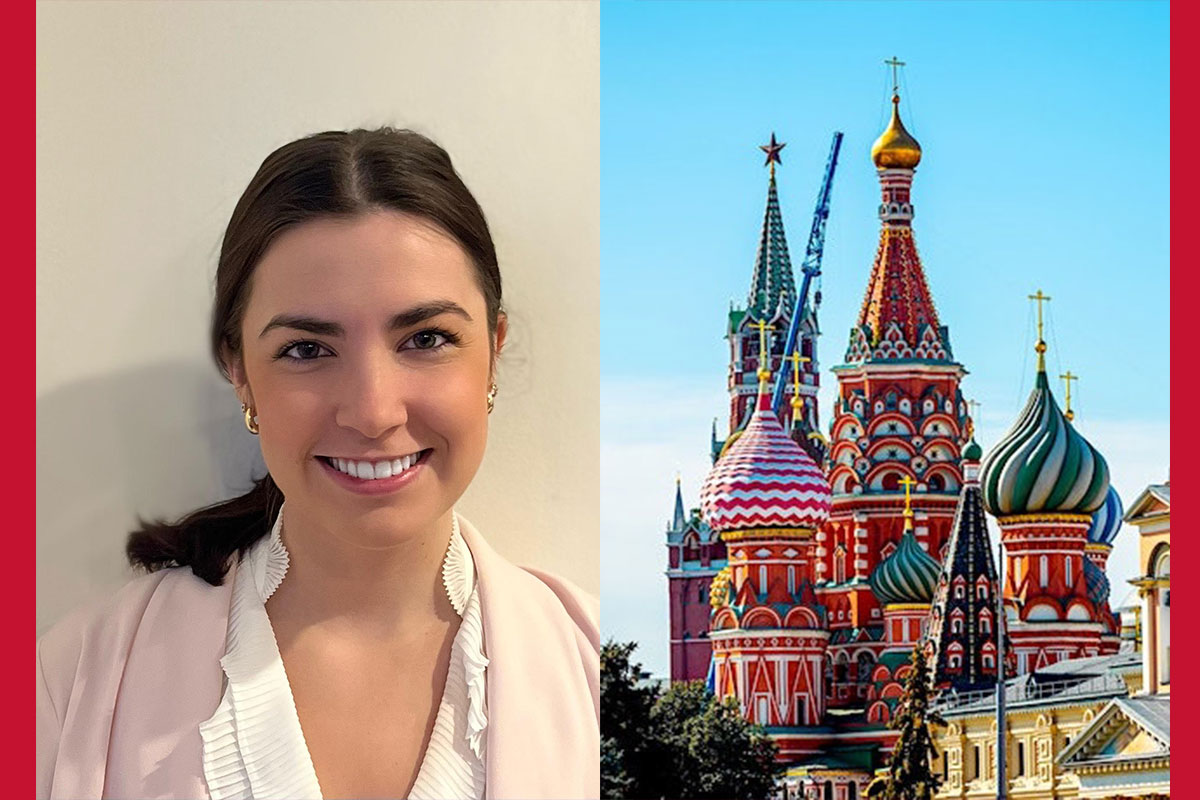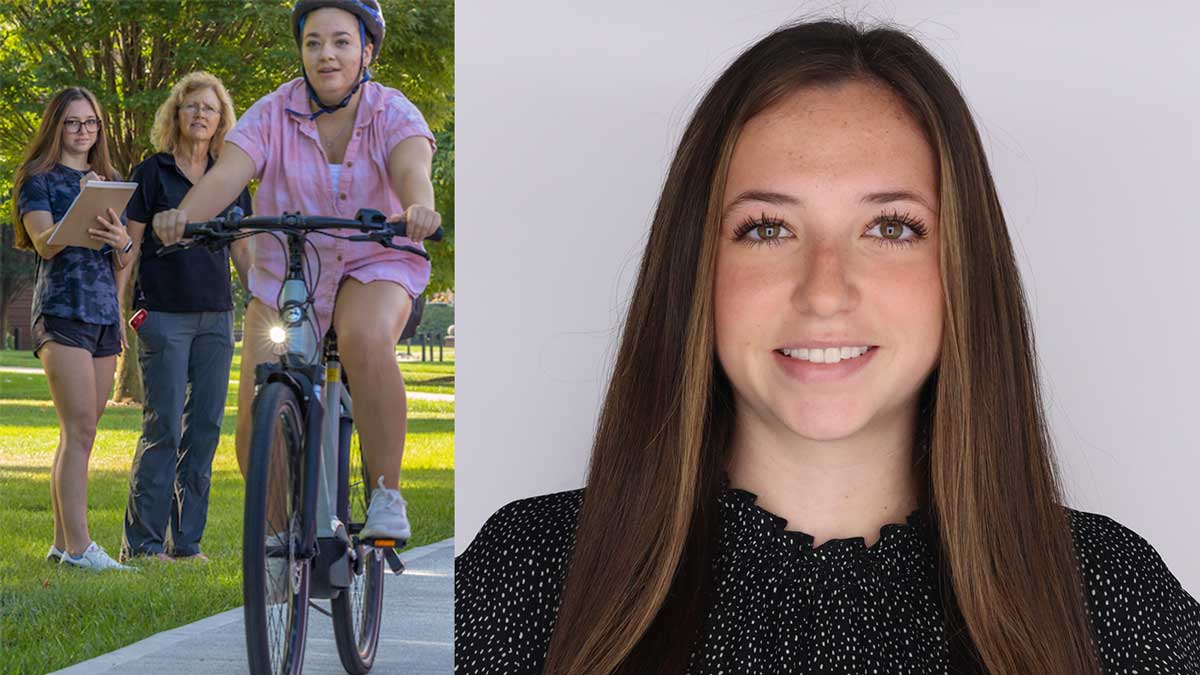Undergraduate CAS student develops a research project to explore “The Orthodox Church and Homophobia in Putin’s Russia”
Gretchen Allman ‘23 joined the Undergraduate Summer Scholars program to pursue a topic centered in a region of heightened political conflict.

Undergraduate CAS student develops a research project to explore “The Orthodox Church and Homophobia in Putin’s Russia”
Gretchen Allman came to Miami with an interest in human rights and politics. She discovered she had a passion for this topic in high school, specifically in the area of political violence.
“I took a class on human rights in high school, and the big final project was a paper on a human rights issue, and I wrote about the genocide in Bosnia,” Allman said. “I just thought it was so fascinating to study a political angle on why violence happens.”
At Miami, Allman chose to major in Diplomacy and Global Politics, where she was able to apply and pursue her research interest through the Undergraduate Summer Scholars (USS) program.
“I was looking for something to do over the summer that would be more of a research opportunity rather than working in an office,” she said. “I'd like to do more research after Miami, so I just wanted to get my toes in the water and see what it would be like.”
Allman searched the Miami website for flexible opportunities that could be relevant to her goals beyond college. With so much to choose from, she found this step to be difficult – but with the help of her faculty mentor, Venelin Ganev, professor of Political Science, she was able to narrow down her topic. Ultimately she named her research project “The Orthodox Church and Homophobia in Putin’s Russia.”
“It ended up being a big focus on the relationship between church and state and using homophobia as an example of how that works and what it looks like,” Allman said.
Allman soon realized that the Orthodox Church and the government have a complicated history in Russia.
“There is a symbiotic relationship between the church and the state, because the Orthodox Church was really repressed during the Soviet Union, especially under Stalin when all religion was banned,” she said. “And so it basically lost a lot of its relevancy.”
She also found that the Church has worked to regain power in Russia through the help of Putin.
“Putin can give the Catholic Church things that it wants, like restrictions on LGBTQ members of Russian society,” Allman said. “The Church can also direct the Russian public to be like, here, believe this. They're on our side, God believes in Putin.”
Allman appreciated the independence she was given by her professor, which provided guidance but allowed her to form her own research path.
“It was more of me setting the guidelines of what everything should look like and Dr. Ganev being a little bit of a crutch for, ‘Yes, you're on the right track. Here's where you might want to go with this,’” she said.
Allman communicated her weekly research goals and received feedback in the form of suggestions on where she could find information to accomplish them. This style of guidance allowed her to learn more about the expectations of doing academic research.
“This was a nine-week project that I did and basically organized by myself,” she said. “Just really figuring out a timeline, feeling confident in the amount of work that I'm putting in, and not overthinking a lot was definitely a learning curve and probably the hardest part of it.”
Allman plans on attending graduate school after Miami and said that what she learned from her research gave her a basis of knowledge on Russian politics as well as skills in the formation of research goals and outcomes.
“It definitely helped me be able to organize research like this again, and I have this whole binder full of just the notes that I took,” she said. “Just why political violence happens in general and the motivations of evil leaders is definitely something I'd like to learn about more.”
